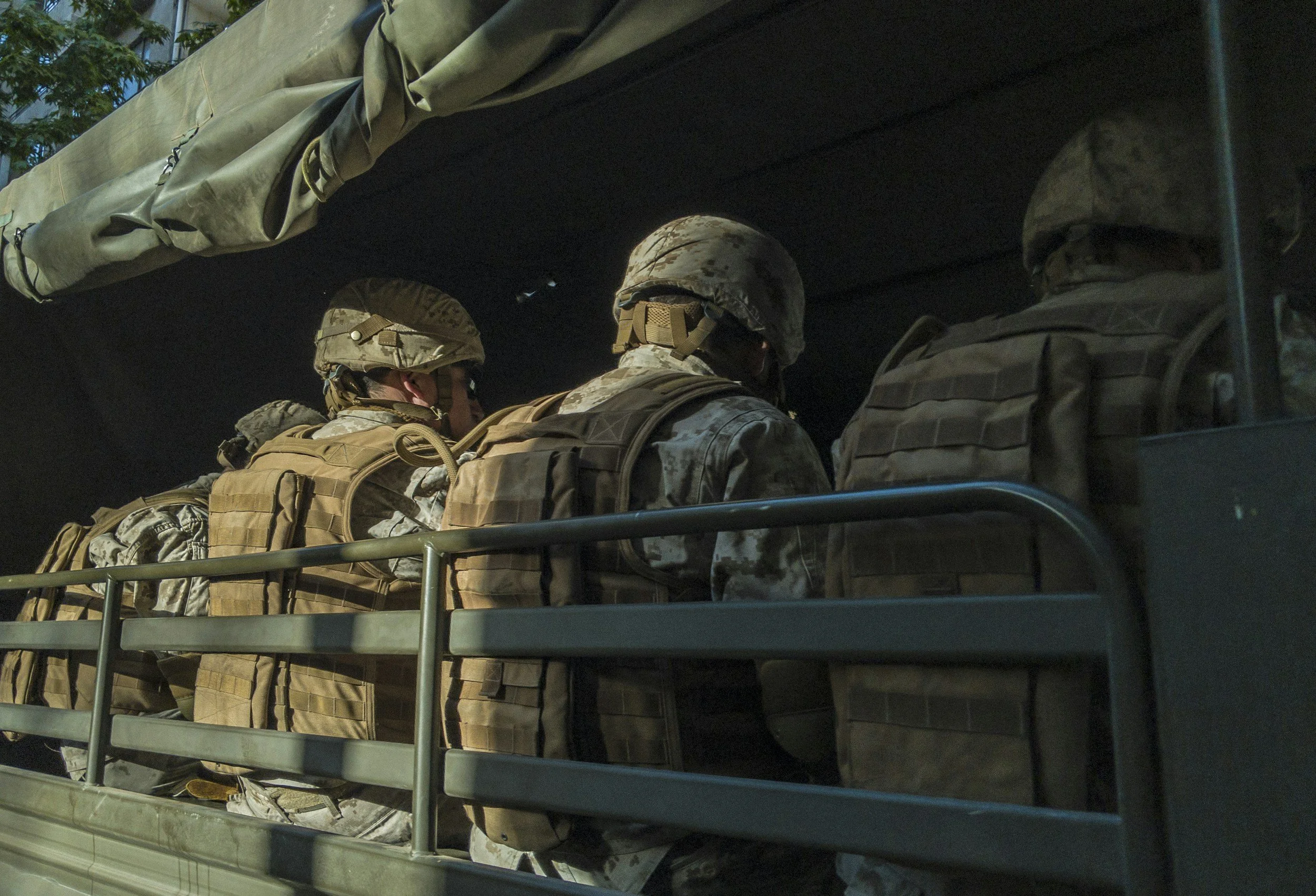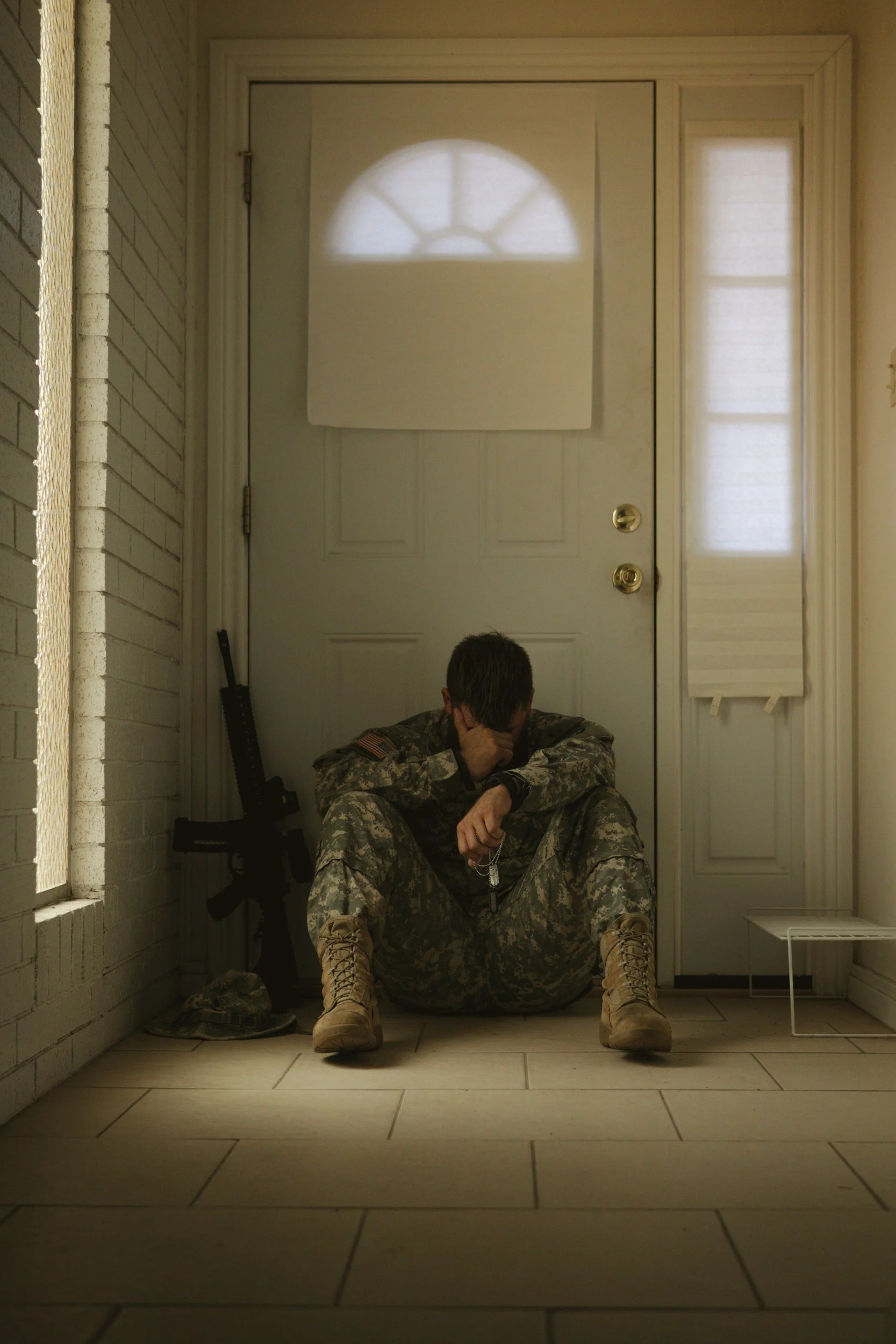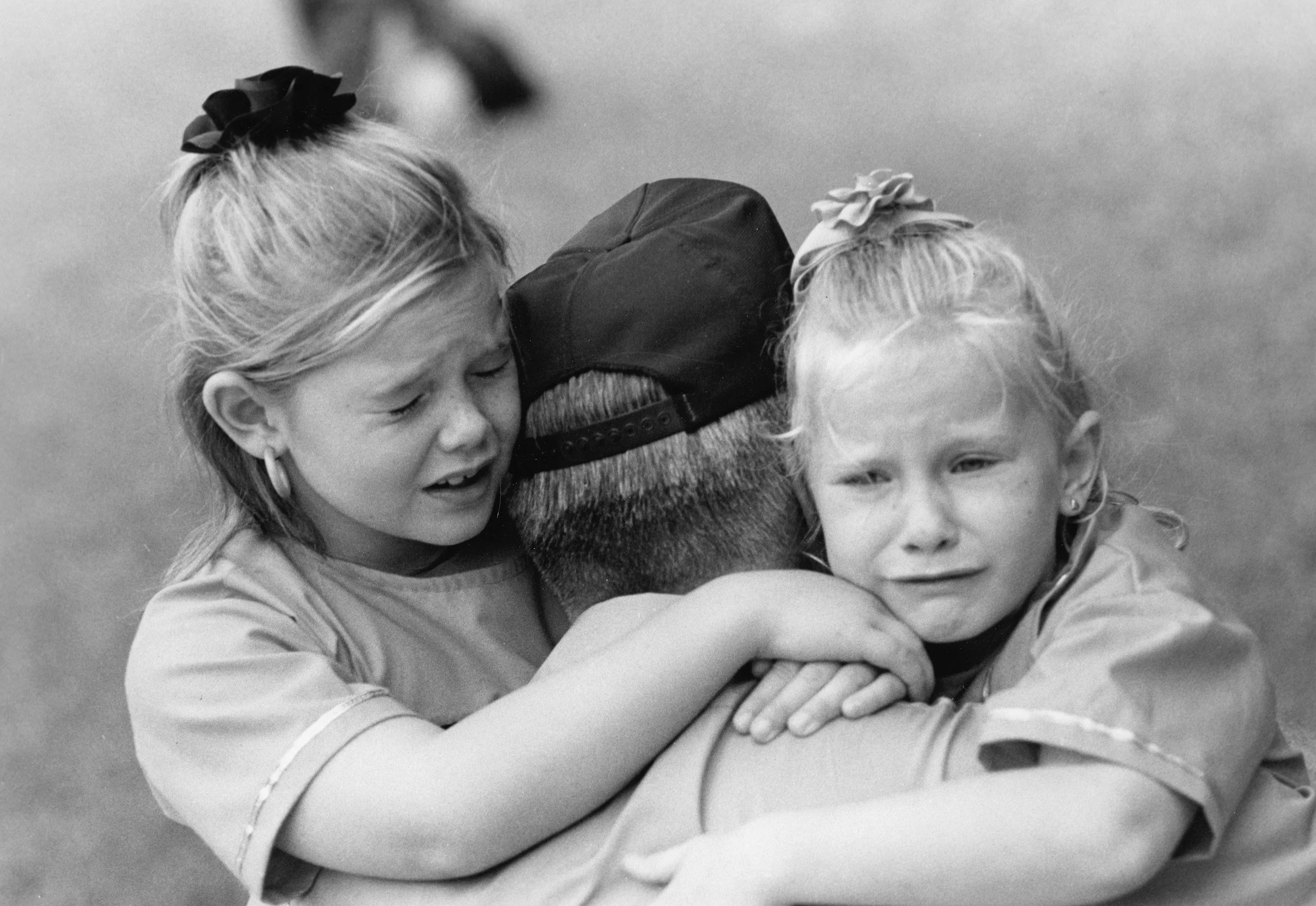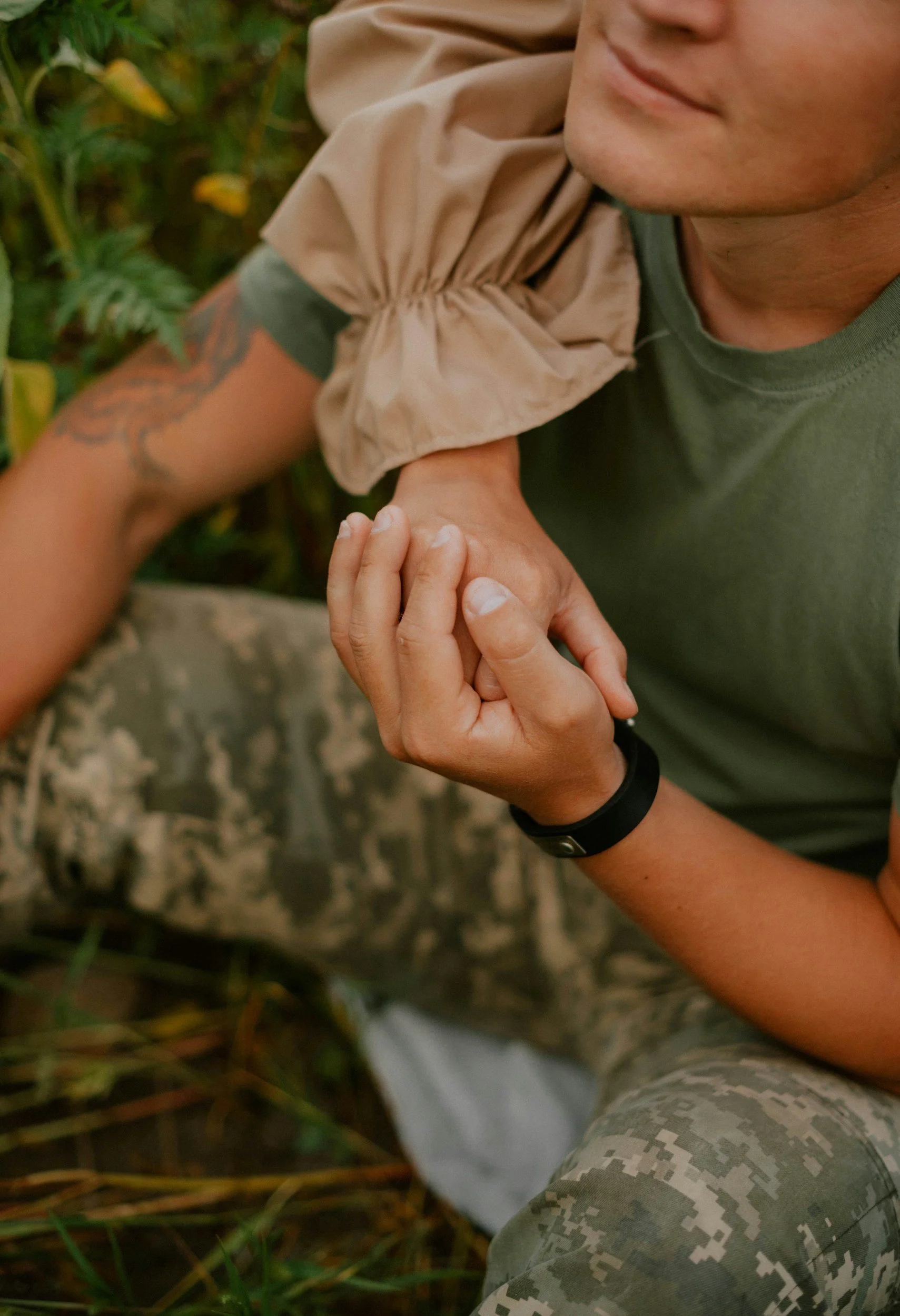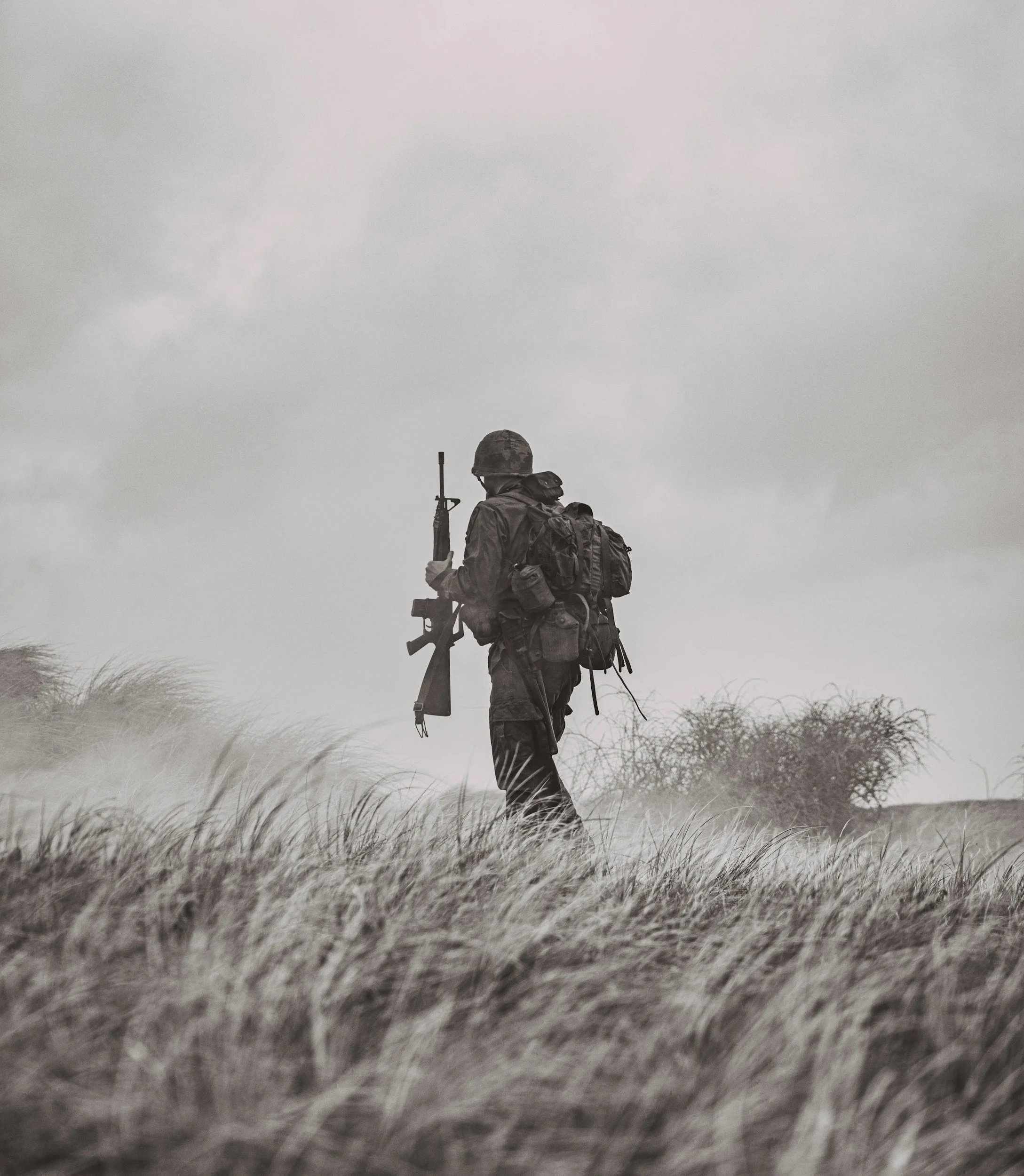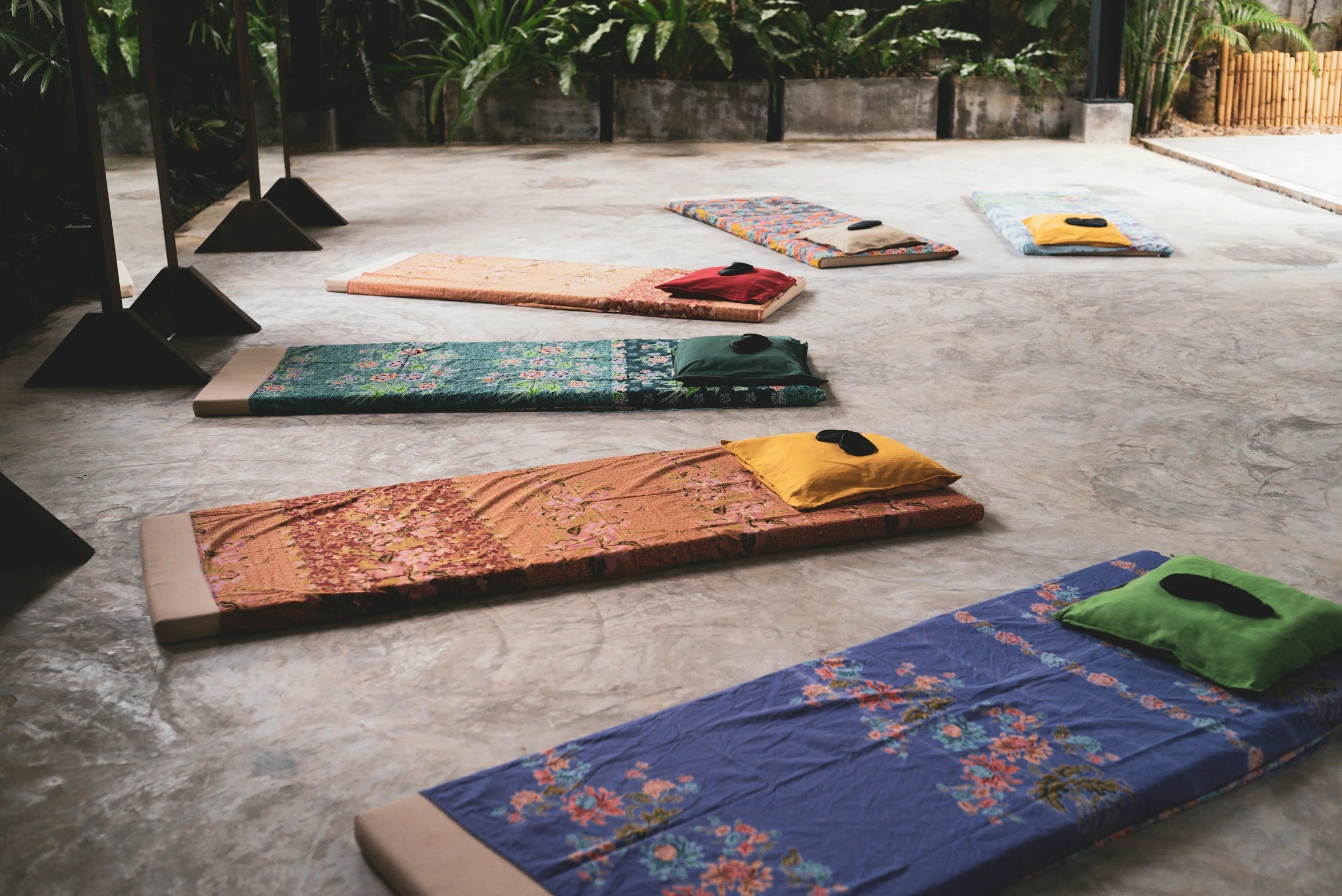Beyond Talk Therapy: Healing PTSD in Veterans Through EMDR, ART & Psychedelics
A trauma-informed guide to evidence-based treatments that work with the body and mind to heal the invisible wounds of service
Coming Home: When the Hardest Battle Begins After Deployment
On Remembrance Day, we pause to honour those who served. We remember their courage, their sacrifice, and the weight they carried in defense of our freedoms. But for many veterans, the act of "coming home" is not a single moment — it's an ongoing journey, one that can feel more isolating and overwhelming than the battlefield itself.
The truth is, some of the hardest battles begin after deployment.
Post-Traumatic Stress Disorder (PTSD), moral injury, and nervous system dysregulation are invisible wounds — ones that don't show up on medical scans but profoundly affect daily life, relationships, sleep, and sense of self. Veterans may find themselves hypervigilant in grocery stores, startled by loud noises, emotionally numb with loved ones, or haunted by memories they can't turn off.
These are not signs of weakness. They are signs of a nervous system that adapted to survive — and now needs support to recalibrate.
Healing takes more than talk therapy. It requires a holistic approach, one that works with the body, the mind, and the soul.
PTSD Trauma Therapy for Veterans in Kingston, Ontario
Understanding PTSD and Trauma in Veterans
Veterans living with PTSD often experience:
Hypervigilance: constantly being on alert, scanning for threats, feeling on edge, and difficulty relaxing
Nightmares and flashbacks: intrusive memories that feel as real as the original event
Emotional numbing: feeling disconnected from joy, love, or even anger
Exaggerated startle response: jumping at sudden sounds or movements
Relational distance: withdrawing from family and friends, feeling misunderstood
Sleep disturbances: insomnia, restless sleep, fear of nightmares
According to Veterans Affairs Canada, PTSD affects a significant number of Canadian Armed Forces members and veterans, impacting their ability to reintegrate into civilian life.
The Neuroscience of Trauma: Why Your Brain Gets Stuck
Trauma isn't just a memory — it's a physiological imprint. When someone experiences a life-threatening event, the brain's alarm system (the amygdala) becomes hyperactive, while the thinking brain (the prefrontal cortex) goes offline. The body gets stuck in fight, flight, or freeze mode.
Research published in the American Journal of Psychiatry shows that in PTSD, the amygdala remains overactive while the prefrontal cortex shows reduced activity, making it difficult to regulate emotional responses.
For veterans, this means:
The nervous system remains on high alert, even in safe environments
Traumatic memories are stored differently — as sensory fragments rather than coherent narratives
The body continues to react as if the threat is still present
The Ripple Effect: Impact on Families and Identity
PTSD doesn't just affect the individual — it impacts families, identity, and the entire process of reintegration into civilian life after military service. Partners may feel shut out. Children may sense the tension. Veterans may struggle to find meaning or purpose outside of military structure. The person who left for service may feel fundamentally changed from the person who returned.
Why Talk Therapy Isn't Always Enough for Trauma Recovery
Traditional talk therapy — such as Cognitive Behavioral Therapy (CBT) — can be incredibly valuable for veteran mental health support. It helps veterans gain insight, challenge unhelpful thoughts, and develop coping strategies. But here's the challenge:
Trauma often lives in the body, not just the mind.
When the nervous system is stuck in survival mode, trying to "think your way out" of trauma can feel impossible. You can understand why you're safe, but your body doesn't believe it. Your heart still races. Your muscles still tense. The nightmares still come.
This is where bottom-up approaches come in — therapies that access the nervous system directly, working with the body and brain to release trauma at its source.
EMDR Therapy for Veterans: Rewiring the Brain's Response to Trauma
What Is EMDR?
Eye Movement Desensitization and Reprocessing (EMDR) is an evidence-based psychotherapy that helps the brain reprocess traumatic memories so they no longer trigger overwhelming emotional and physical reactions.
During EMDR, the therapist guides the client through bilateral stimulation — typically eye movements, but sometimes taps or sounds — while the client briefly focuses on the traumatic memory. This process helps the brain "unstick" the memory and integrate it in a healthier way.
EMDR was developed by Dr. Francine Shapiro in 1987 and has since become one of the most researched and validated treatments for PTSD. The World Health Organization (WHO) and the American Psychological Association (APA) both recognize EMDR as an effective treatment for trauma.
How EMDR Helps Veterans with PTSD
EMDR is particularly effective for PTSD treatment for veterans because it:
Targets specific traumatic events: combat experiences, loss of comrades, moral injury, life-threatening situations
Reduces the emotional charge: memories become less vivid, less distressing, and easier to manage
Doesn't require detailed verbal processing: you don't have to "tell the whole story" — the brain does the healing work
Works with the body's natural healing capacity: similar to how REM sleep processes daily experiences
Veteran-Specific Examples: Healing After War
A veteran might use EMDR to process:
Combat experiences that won’t turn off — intrusive flashbacks of explosions, ambushes, or missions replaying in vivid detail.
Moral injury — reconciling actions or decisions made in combat that conflict with personal values or beliefs.
Loss of comrades — processing survivor’s guilt and the painful images or sounds tied to losing fellow service members.
Chronic hypervigilance — difficulty feeling safe in civilian settings; constantly scanning for threat even in everyday life.
Startle responses and body tension — flinching at sudden noises or staying physically “on guard.”
Nightmares and restless sleep — recurring dreams that replay traumatic events or feelings of being back in combat.
Emotional numbing or detachment — struggling to connect with loved ones, feel joy, or experience intimacy after returning home.
Guilt and shame — unresolved emotions tied to survival, orders followed, or situations that felt morally conflicting.
Identity and purpose loss — difficulty integrating “who I was in service” with “who I am now.”
Feeling stuck despite therapy — understanding the trauma logically but still feeling hijacked by body reactions or triggers.
Recognition and Coverage for Canadian Veterans
“After years of flashbacks and nightmares, a veteran shared that EMDR finally let her sleep through the night — not because she forgot, but because her body finally believed she was safe.”
EMDR is recognized by Veterans Affairs Canada (VAC) and is covered by Blue Cross insurance for veterans. It's considered a gold-standard treatment for PTSD by leading health organizations worldwide.
Benefits of EMDR for Trauma Recovery
Reduced reactivity and emotional flooding
The same triggers that once caused intense reactions—anger, panic, or shutdown—become manageable. Veterans often describe feeling calmer and more in control of their responses.
Improved sleep and fewer nightmares
As the brain reprocesses traumatic memories, the body begins to rest again. Many veterans notice deeper, uninterrupted sleep and a reduction in trauma-related dreams.Restored sense of safety in the body
EMDR helps the nervous system shift out of constant fight-or-flight. Veterans report finally being able to relax—without needing to stay on guard.Greater capacity for connection and presence with loved ones
As hypervigilance and emotional numbness ease, it becomes easier to connect authentically with partners, children, and friends—reclaiming closeness that trauma once disrupted.
Accelerated Resolution Therapy (ART): Rapid Relief from Nightmares and Intrusive Images
What Is ART?
Accelerated Resolution Therapy (ART) is a short-term, evidence-based therapy that combines eye movements with imagery rescripting to help clients replace distressing images with calm or neutral ones.
Developed by Laney Rosenzweig in 2008, ART has shown remarkable results in clinical studies. Research published in Behavioral Sciences demonstrates significant reductions in PTSD symptoms after an average of just 3-5 sessions.
While ART shares some similarities with EMDR, it's more directive and focuses specifically on changing the way traumatic images are stored in the brain.
How ART Differs from EMDR
More directive: the therapist actively guides the visualization process
Imagery rescripting: clients are invited to "rewrite" the traumatic image in their mind, replacing it with something less distressing
Minimal emotional flooding: clients don't have to re-experience the trauma in detail
Why ART Works for Veterans: Combat Trauma and Moral Injury
ART is especially effective for:
Combat trauma
Processing vivid or distressing memories from violent or life-threatening situations — such as explosions, ambushes, or witnessing injury or death in the line of duty.Nightmares
Reducing the frequency, intensity, and emotional charge of recurring trauma-related dreams so the nervous system can finally rest.Grief and loss
Soothing the deep emotional pain of losing comrades, helping veterans find peace while still honouring the memory of those they served alongside.Moral injury
Addressing guilt, shame, or inner conflict connected to actions, decisions, or events in service that feel at odds with personal values or beliefs.
Benefits of ART for Trauma Recovery
Rapid reduction in distressing images and flashbacks
Many veterans experience relief from specific combat memories or intrusive visual scenes within just a few sessions — without having to retell their full story in detail.Increased emotional regulation and calm
Veterans describe feeling more grounded and less emotionally reactive — able to stay present even when reminders of trauma arise.Relief from guilt, shame, and moral injury
ART helps reprocess the emotional weight of military experiences, allowing veterans to view past events with greater compassion and perspective.Greater sense of control and empowerment
Because ART works quickly and focuses on reclaiming peace of mind, many veterans leave sessions feeling lighter, clearer, and more in charge of their own healing.
While EMDR and ART are currently accessible, a new wave of therapies is emerging — combining neuroscience and pharmacology to accelerate healing.
The Frontier of Healing: MDMA-Assisted Psychotherapy for PTSD
Psychedelic-Assisted Therapy for Veterans in Canada
What the MAPS Research Shows
The Multidisciplinary Association for Psychedelic Studies (MAPS) has conducted groundbreaking research on MDMA-assisted psychotherapy for PTSD — with remarkable results for veterans and others with treatment-resistant PTSD.
In Phase 3 clinical trials published in Nature Medicine, the results were striking:
67% of participants no longer met criteria for PTSD after three sessions of MDMA-assisted therapy
88% experienced clinically significant reduction in symptoms
Veterans reported significant reductions in symptoms, improved relationships, and a renewed sense of hope
The therapy was well-tolerated, with minimal adverse effects when conducted in a controlled, therapeutic setting
A 2021 study in Nature Medicine showed that MDMA-assisted therapy was particularly effective for individuals with severe PTSD, including military veterans, who had not responded to traditional treatments.
How MDMA-Assisted Therapy Works
MDMA (3,4-methylenedioxymethamphetamine) is not a “party drug” in this context — it’s a therapeutic tool used in a safe, professionally guided environment. When combined with psychotherapy, MDMA helps unlock healing that can be difficult to access through talk therapy alone.
Reduces fear and defensiveness
Creates a sense of emotional safety, allowing veterans to revisit painful memories without becoming overwhelmed or shut down.Increases feelings of trust and openness
Enhances the therapeutic alliance and fosters deep connection between client and therapist — a key factor in trauma recovery.Enhances emotional connection
Helps veterans reconnect with their own emotions, loved ones, and sense of self that may have been numbed by trauma.Facilitates profound healing
In just a few guided sessions, veterans often experience breakthroughs where years of traditional therapy had plateaued — restoring hope and vitality.
A New Hope for Treatment-Resistant PTSD
For veterans who have tried multiple therapies without relief, MDMA-assisted psychotherapy represents a new frontier in healing after war. It's particularly promising for those with complex PTSD, moral injury, or co-occurring conditions like depression and substance use.
While MDMA-assisted therapy is still in the process of regulatory approval in Canada, Health Canada has granted exemptions through the SAP program for compassionate use, and trained therapists are preparing to offer this treatment as it becomes more widely available.
While MDMA-assisted therapy is awaiting Health Canada approval, Brittnee Stewart (RP) Co-Owner and Therapist at Spear has completed advanced training through TheraPsil in MDMA-Assisted Psychotherapy and is happy to connect with you to answer any questions you may have about this type of treatment and how to legally access it in Canada.
Holistic and Adjunct Therapies: Healing the Whole Person
Trauma recovery for veterans isn't just about addressing symptoms — it's about restoring a sense of wholeness, safety, and vitality. That's why many veterans benefit from integrating holistic and body-based therapies alongside EMDR, ART, or psychedelic-assisted work.
Massage Therapy for Veterans with PTSD
Trauma is stored in the body. Chronic muscle tension, pain, and nervous system dysregulation are common in veterans with PTSD. Research in the International Journal of Therapeutic Massage & Bodywork shows that massage therapy can significantly reduce PTSD symptoms.
Massage therapy can:
Release physical tension and stored stress — easing chronic tightness and grounding the body after years of hyperarousal.
Regulate the nervous system and promote relaxation — supporting the body’s natural ability to shift out of fight-or-flight.
Improve sleep and reduce pain — calming the parasympathetic system for deeper rest and physical comfort.
Help veterans reconnect with their bodies — offering safe, non-invasive touch that rebuilds trust and awareness in one’s own physical experience.
Other Supportive Approaches for Coming Home After Military Service
Veterans may also benefit from:
Somatic therapy
Works directly with body sensations to release stored trauma and restore regulation. Helps veterans recognize physical signs of stress and learn how to bring the nervous system back into balance.Mindfulness and Breathwork
Calms the body’s stress response and anchors attention in the present moment. These practices train the brain and body to recognize safety and shift out of hyper-arousal.Yoga and mindful movement
Rebuilds a sense of agency, strength, and grounding in the body. Movement-based therapies help veterans reconnect with themselves through gentle awareness and physical confidence.Peer support groups
Creates connection and belonging among others who understand military culture and shared experiences — reducing isolation and fostering community in recovery.
Accessing Care: Blue Cross and VAC Coverage for Veterans
One of the barriers veterans face is navigating insurance and coverage. The good news: Veterans Affairs Canada (VAC) and Blue Cross cover many of these evidence-based treatments.
What's Covered for Canadian Veterans?
EMDR therapy
ART therapy
Registered Massage therapy
Psychotherapy services (including trauma-focused approaches)
At Spear Wellness Centre, we work directly with VAC and Blue Cross to make accessing veteran mental health support as seamless as possible. Our team is experienced in supporting veterans through the approval process and ensuring you get the treatment you deserve.
Why These Approaches Work: Beyond Talk Therapy
EMDR, ART, and MDMA-assisted psychotherapy are effective for veterans because they:
Work with the nervous system directly: addressing trauma at the physiological level, not just the cognitive level
Don't require extensive verbal processing: you don't have to relive or retell your story in painful detail
Produce faster results: many veterans experience significant relief in weeks or months, not years
Integrate the body and brain: honouring the fact that trauma is a whole-person experience
Are evidence-based: backed by rigorous research and recognized by leading health organizations
These are trauma-informed approaches that meet veterans where they are — with respect, compassion, and a deep understanding of what it takes to heal from the invisible wounds of service.
You Don't Have to Do This Alone
If you're a veteran struggling with PTSD, moral injury, or the aftermath of military service, please know: healing is possible, and you don't have to do it alone.
There are therapies that work — not just to manage symptoms, but to truly transform your relationship with your past and restore your sense of safety, connection, and purpose.
At Spear, we specialize in trauma-informed care for veterans. Our team understands the unique challenges you face, and we're here to walk alongside you on the path to healing.
Ready to Take the Next Step?
Book a service with one of our VAC-approved clinicians:
EMDR Therapy with Kristin — Book Now
Psychedelic-Assisted Psychotherapy with Brittnee — Book Now
Accelerated Resolution Therapy (ART) with Matt — Book Now
Massage Therapy with Isaac — Book Now
All services are covered by Veterans Affairs Canada (VAC) and Blue Cross insurance.
You served with courage. Now let us serve you with care.
This Remembrance Day, may we not only remember the fallen — but also care for the living. Healing is a continuation of service
Have Questions? Contact Us Now!




